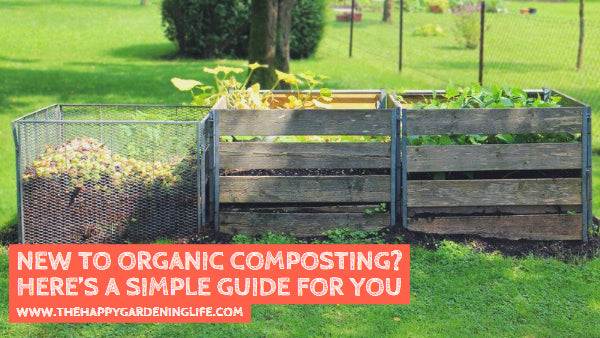
New to Organic Composting? Here’s a Simple Guide for You
Share
Do you really need to use compost in your vegetable garden? No, it’s not a requirement but it’s incredibly beneficial for your soil. Compost actually serves as a health supplement for your fruits, herbs, vegetables and other crops.
It gives out life-sustaining nutrients so your favorite plants can grow healthier and live longer. Compost is also organic, which is strongly recommended especially if you’re starting an organic vegetable garden.
So what are the materials that can be composted? Compostable materials are categorized into two parts: green matter and brown matter. Green matter are moist materials that are rich in nitrogen. Some prime examples are leftover fruits and vegetables, coffee grounds, and tea bags. However, keep in mind that dairy products, meats, breads, and oil are not good for composting, so never add them in your bin.
Brown matter, on the other hand, are dry materials that have plenty of carbon content. These are twigs, dead leaves, shrubs, pine needles, and straw. Be sure to avoid weeds, pet waste, and diseased plants as they can ruin and infect your compost heap.
To make the best organic compost, simply put in equal amounts of greens and browns. Mix them well a few times a week, and they will naturally break down into compost that’s good for your garden.
Check out this quick illustration for more details and remember to share, tweet, and pin this blog post today!

Image Source: gosprout.it
